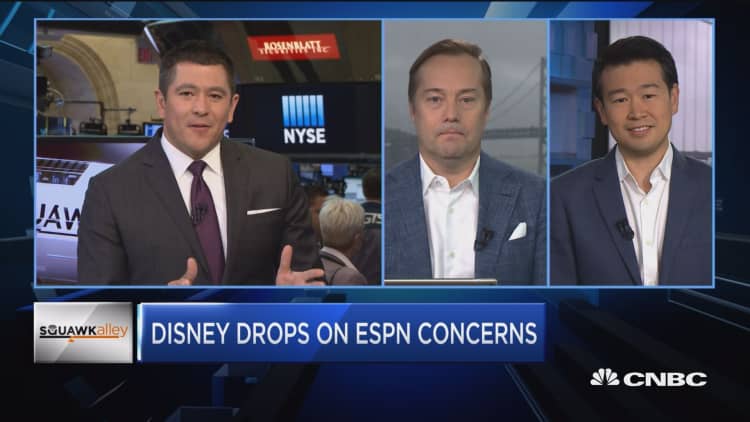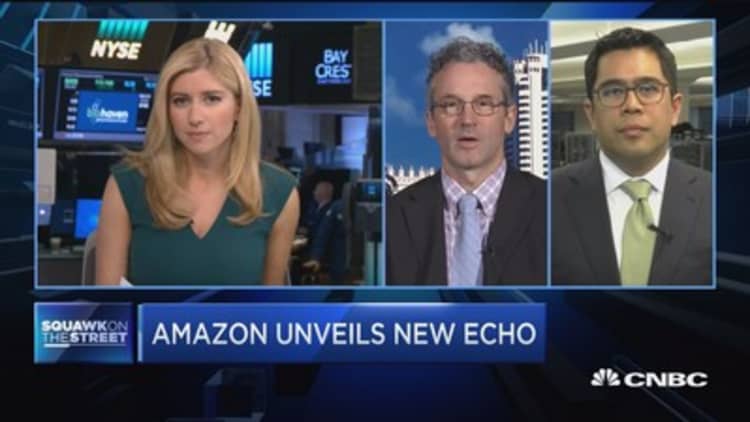
The technology sector's rollicking rally this year has been helped, in part, by the market power the companies have, according to technology investor Jason Calacanis.
"The 'FAAAM' index — Facebook, Amazon, Alphabet,
While stocks pulled back from record highs on Wednesday, the Nasdaq 100 has climbed more than 16 percent so far this year, while the S&P 500 Information Technology sector has jumped more than 17 percent — far more than any other S&P grouping.
Markets may have risen broadly, but companies like Facebook and Google have also made plenty of money. Both companies reported better-than-expected earnings in the first quarter, shaking off controversies around "fake news" and extremist content.
Research firm eMarketer estimates that Google will account for 40.7 percent of percent of U.S. digital ad revenues in 2017. Facebook, eMarketer predicts, will capture 39.1 percent of the display ad market.
"If you look at Google, they have just an amazing monopoly when it comes to search advertising," said Calacanis, a media
Google has what Calacanis referred to as "moats," borrowing from a phrase used by famed investor Warren Buffett: Well-known brand names that make it difficult for them to succumb to competitive forces.
"Google's moats are transcendent now: Chrome, Android," Calacanis said. "It's amazing the monopoly they've built that doesn't look like a monopoly."
The market power
"Facebook, they've always had, or [CEO Mark] Zuckerberg's referred to it as, 'the clown car:' the incompetent Twitter, which can't seem to get out of its own way," Calacanis said. "These are perfect little companies to keep on the side. Don't buy them. Let them be independent. So when the anti-trust people come, you can say, 'Look, no, there's options here.'"
U.S. regulators have their fair share of spats with technology companies, but the debate wages on as to whether these companies cause any economic losses or harm to consumers since they lower prices for some services.
Calacanis said it's a warning for newer tech companies, like , which reports earnings for the first time after the bell on Wednesday.
"They're not going to try to compete with the global user base in the same way Facebook is obsessed with having everybody," Calacanis said. "Snapchat is going to really get themselves into trouble if they get into Yahoo's big problem, which was a constant comparison
Walmart closing the gap on Amazon?

— Reuters contributed to this report.


